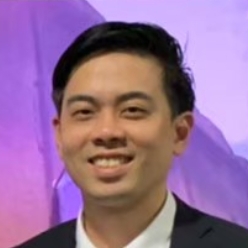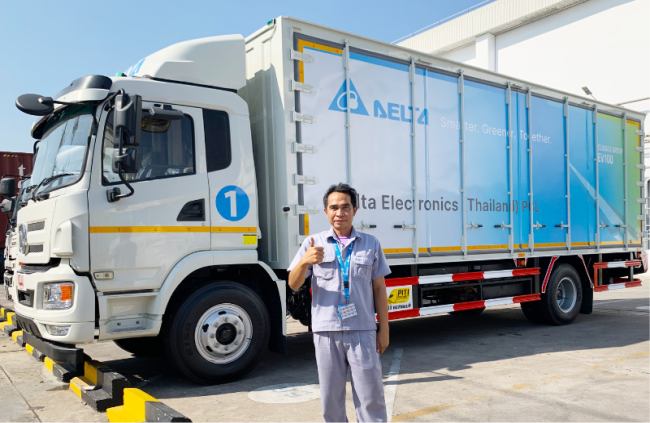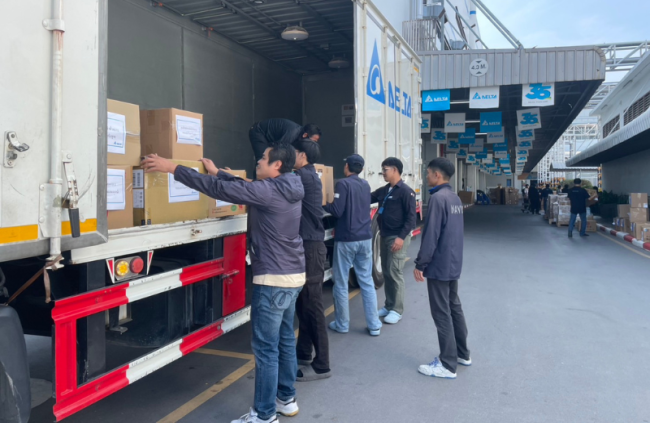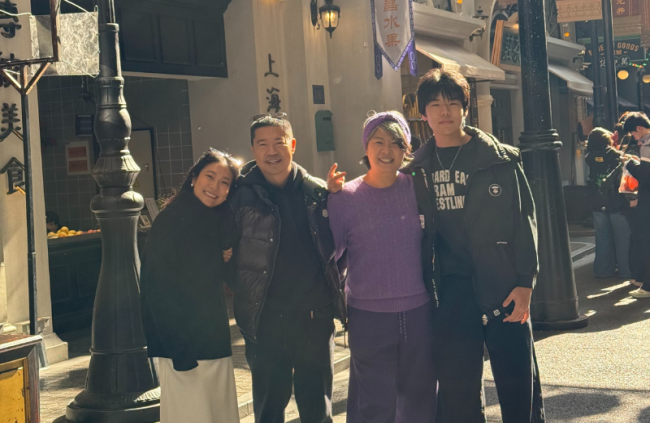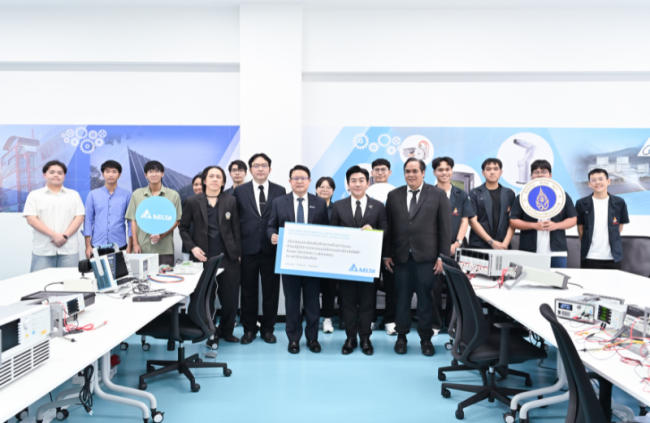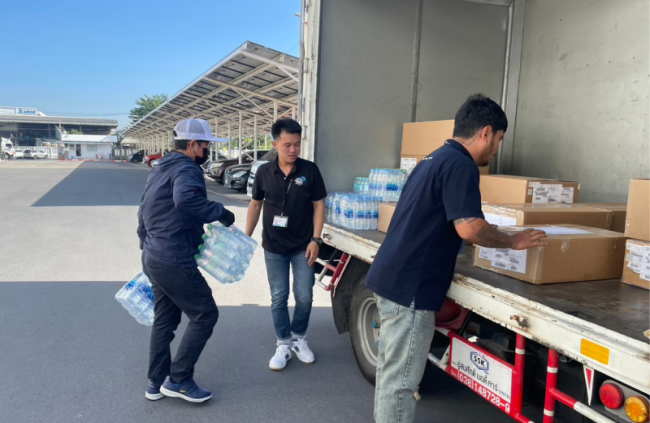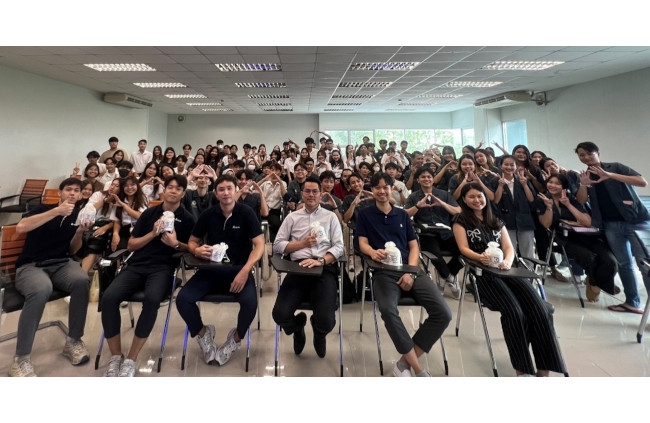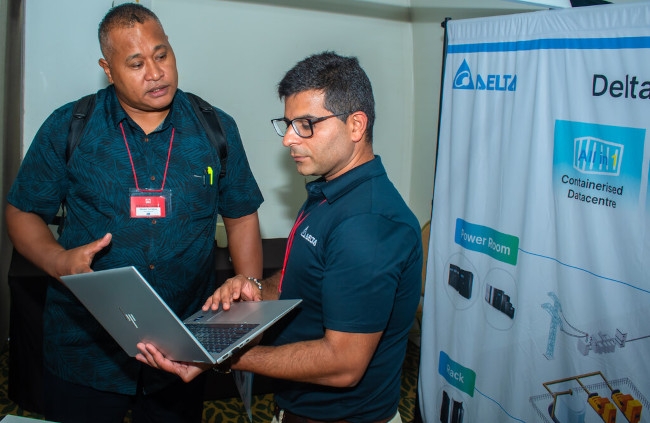Embody a Higher Purpose: New DET CEO’s Vision for Growth to a Good Company
By David Nakayama - Published May 20, 2024
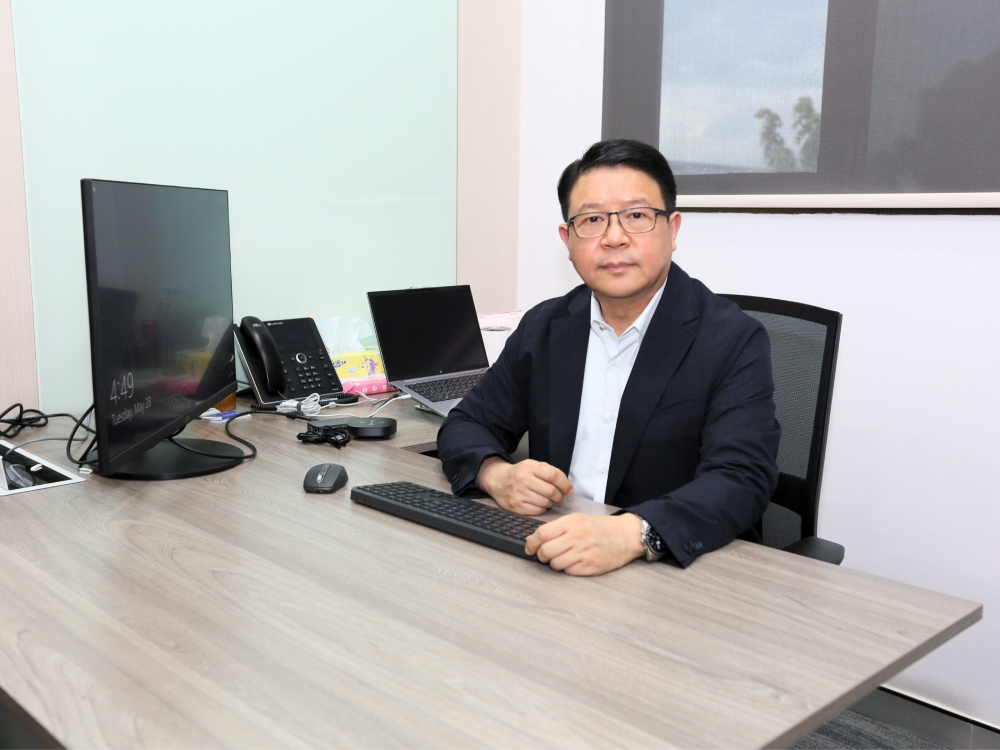
Interview with Mr. Victor Cheng, CEO of Delta Southeast Asia and Australia
Photographs by Chatchawan Koomook, DET ER and Delta CEO Office
Samutprakarn, Thailand, May 29, 2024-For over three decades, Victor Cheng has been at the heart of Delta’s growth from the core power business to display, networking and infrastructure segments. With the rise of Delta Thailand as a key manufacturing and driver of future growth for Delta Group, Victor has now arrived to take on a newly created Chief Executive Officer (CEO) role and lead the region to new heights.
Recently, I had the opportunity to sit at our CEO’s office for an exclusive interview. Together, we went over some of the highlights of his career at Delta and he gave background on how Delta Group’s global organization grew and Delta Thailand’s unique development. He also shared his vision for the region and his philosophy of what makes a good company and a supportive leader.
Can you share about your life and career before coming to Thailand?
Probably most people know that I am Bruce Cheng's (Delta Group Founder) son. I went to the US when I was 15 and lived there for 14 years, mostly on the West Coast in the San Francisco Bay Area. I went to Santa Clara University for both a bachelor’s and master’s degree in electrical engineering.
I officially started working at Delta in 1993 with the Display business in Chungli, Taiwan until 2002. From 2002 to 2014, I was with Delta Networks Inc. or DNI and then from 2014, I was with the PSBG based in Chungli. In 2018, PSBG was divided into ICT BG and EIS BG and the former embedded power or EPSBG changed its name to the current PSBG. In 2022, we reorganized again and created an infrastructure group that included ICTBG, EISBG and DSBU. In 2023, I was called to join Delta Thailand.
How have you seen Delta’s global organization evolve over the years?
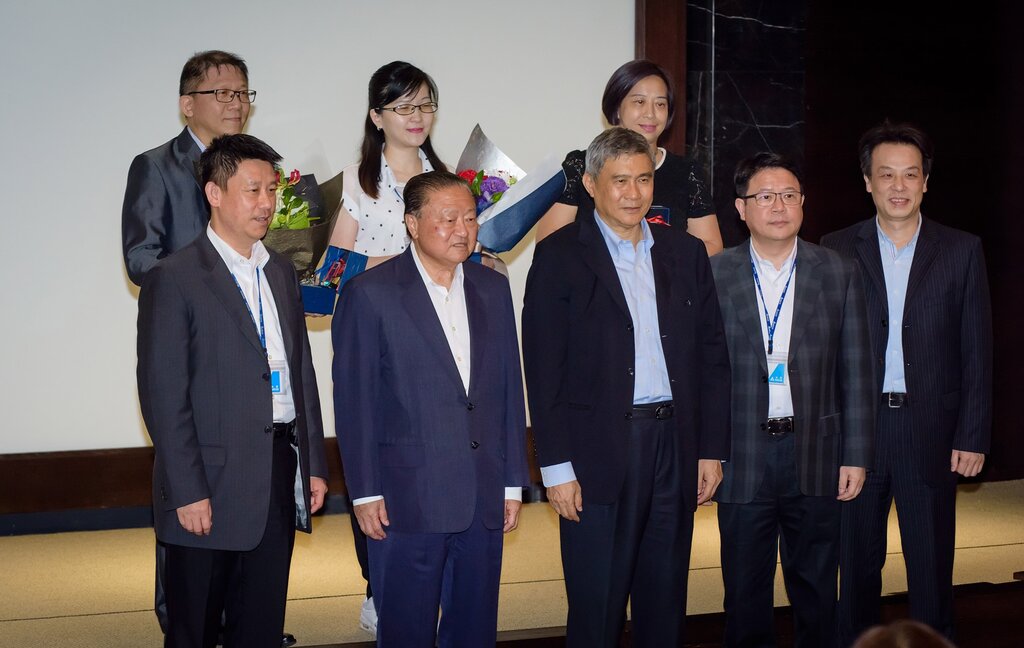
During my time in Taiwan, I was involved in the sales, marketing and design of our products and solutions which is controlled from the BU and BG side. This arrangement came about mainly to cope with the geographical spread of our manufacturing from Taiwan to overseas where product design and product making became separated.
In the very beginning, we only operated in Taiwan, so everything was aligned with reporting from manufacturing to BU. When we expanded to China, we still had a line of reports. However, Delta Thailand is a little bit different because we have our own legal structure and then eventually in 1995 Delta Thailand became a public company here.
So, Delta Thailand has become a manufacturing arm for some of the Delta Group businesses but at the same time is not entirely under direct control by those businesses. In contrast, Taiwan and China keep the original structure of business and manufacturing directly controlled as one big silo.
You have been involved in many innovative business groups from display solutions to ICT and energy infrastructure. What are some of the milestones in your career so far?
I enjoyed many great experiences and challenges at every BG. When I joined DNI it was a separate legal entity in a totally different field from Delta’s primarily power-related business. We took the company public in Hong Kong but due to a number of reasons, mainly the global financial crisis, we took it off in 2009. We grew the business from about 200 MUSD in 2003 to about 800 MUSD by 2013. So, in around 10 years our revenue grew four times to the billion-dollar range and DNI is still one of the major networking companies in Taiwan today.
To be honest, back in those days entering into the networking business was not so much a strategic move but more of a decision to just do something different to expand. The networking systems business is a different breed of animal from power electronics. Our main ambition was to get involved in the ICT equipment business. We started with switches and connectivity because this particular segment is not as structured as the PC segment dominated by giants like Intel and Microsoft.
In networking, there are no totally dominant players. Cisco is a very strong networking company but there are still many other networking companies with very different product lines. This means more opportunity in a diverse market that is smaller and not as price-cutting. Even though we are basically an ODM manufacturer we still build a complete product with a hardware system, software, operating systems and user interface. Although we don’t have our own branded products out on the market, we do make a whole managed switch and Wi-Fi router product with the full function that DNI delivers to its customers.
During my time at ICTBG, we grew the business significantly and from 2014 to 2015 we completed a 500 MUSD acquisition of Eltek in Norway. I think to date, this has been the biggest single project for us. Even before acquiring Eltek, Delta was already a major player in outdoor telecom station power systems, so we became the industry leader after the Eltek acquisition, and I am proud to have been involved in this.
Since January, you have taken on the new CEO role at Delta Thailand. What business strategies and innovation do you feel passionate about driving?
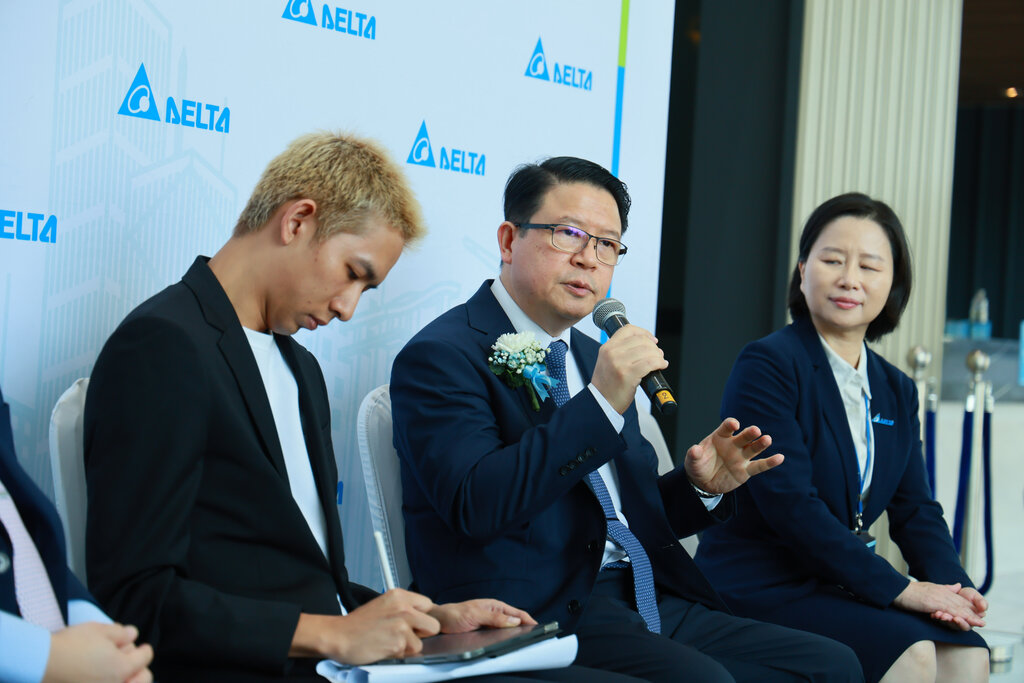
I think my ambition is to make Delta Thailand more sustainable and successful by building a deeper engineering foundation here. We make many products here but much of the local contribution is in manufacturing and not too much in the design and development of products. If we can independently contribute to the design aspect and market approach this will help the entire Delta Group. This means a lot more focus on R&D in power, networking, thermal solutions and components.
Then there is the SEA regional business expansion because at Delta Thailand we wear two hats. One is as a major manufacturing operation and the other one is as a solution business center for the Southeast SEA region and Australia. For our big global OEM customers, we're focusing more on the manufacturing level for export and here in the region we're more focused on the service level for local customers.
The main reason for the regional solutions business model is that we don’t have big local ODM electronics or automotive customers but there are many sizable local customers that need solutions. Delta industrial solutions for key accounts or distribution sales target manufacturers moving into Vietnam, Thailand and Indonesia who need automation solutions. Regional datacenters need UPS for backup power and all businesses need renewable energy, monitoring systems and energy management.
Delta is ramping up investment in Thailand. Why is Thailand so important for our global production and Delta’s future growth?
Delta Thailand already has a good scale and has been well-established with strong support from the local government for many years. Overall, we do feel Thailand is a business-friendly country that is located in the center of ASEAN which is great for local business with regional countries.
When we surveyed other regional choices, we felt there was just no better choice than Thailand and it has proven to be a stable and friendly country. Geographically, Thailand is not far from Taiwan and China which makes communication and meetings convenient. So, we are still growing and looking further down the years we will expand rapidly as a result of business coming to Thailand and the strong growth of our EV business.
Looking at the mid-term, can you please share the direction and your expectations for the next few years?
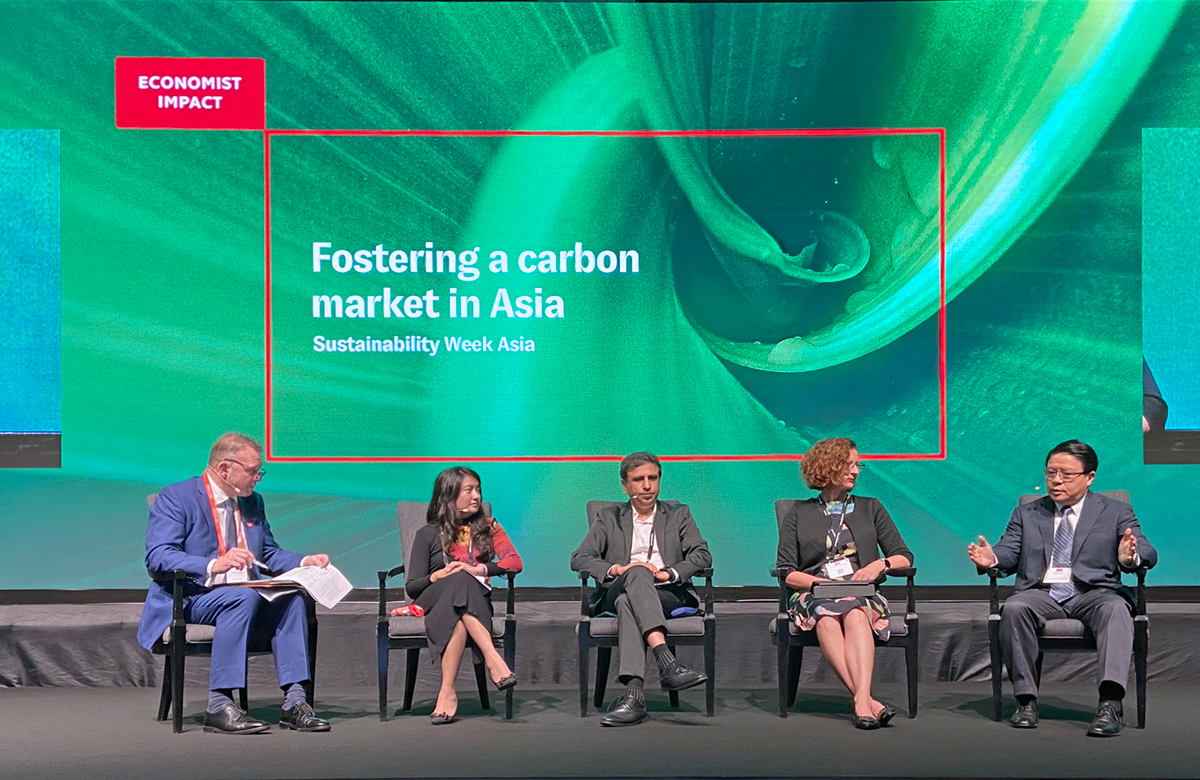
I believe we must strengthen our engineering and technical resources in the next few years to be able to independently develop more products and solutions. We will hire aggressively from both the 1st and 2nd tier-level local universities. We have established power and automation labs in seven universities so far and actively recruit from universities across the country.
We are also working with university professors to offer power electronics and automation courses with our own equipment and systems for them to practice. Regionally, we engage with universities in Vietnam and Singapore but are now most active with academic partnerships in Thailand.
We are adding a lot of R&D resources and we'll add more R&D talent in the future. This year, we will launch the Delta Cup in Thailand which will stimulate university students towards a direction more aligned to our areas of business. We are also actively promoting Delta Thailand as a destination for our Taiwanese and Chinese engineers to relocate for work.
How are AI and Industrial Automation technologies transforming the way we work, and what is the future of work at Delta Thailand in the new Industry 4.0 reality?
Today we are already involved with the AI power supply and that will become a growth engine for Delta Thailand in the next few years. Many of the production processes nowadays are operated by machines and the goal is to reach about 80% automation level. The machines will record the data that will become a basic database to implement Machine Learning (ML) which uses algorithms to detect stability or deviation. With the power of AI, we can boost quality, precision and of course productivity and even safety in our production processes.
We must understand that the whole manufacturing industry in Southeast Asia is going through a fundamental change. Many regional countries like Thailand face population decline and aging societies like we already had in Taiwan, Korea, Japan and China. As in Taiwan, there will come a time here when there are not as many production line workers, so we need machines and a higher automation degree to gradually take over some of the repetitive manual tasks.
The skill set needed in production will evolve from manual operator to more of a technician role who can operate, maintain, and program machines. Job requirements will include things like servicing machines or analyzing machine data. We saw a similar situation happen in Taiwan and China so it will happen naturally in Thailand as well.
Finally, as a nation’s economy develops it generally transitions to more of a service economy so there will be probably more career choices in the future. Thailand has a very vibrant service industry, especially for tourism, so people may or may not choose to work in the manufacturing sector in the future.
What do you enjoy most about Thailand, and how do you enjoy your life since coming here?
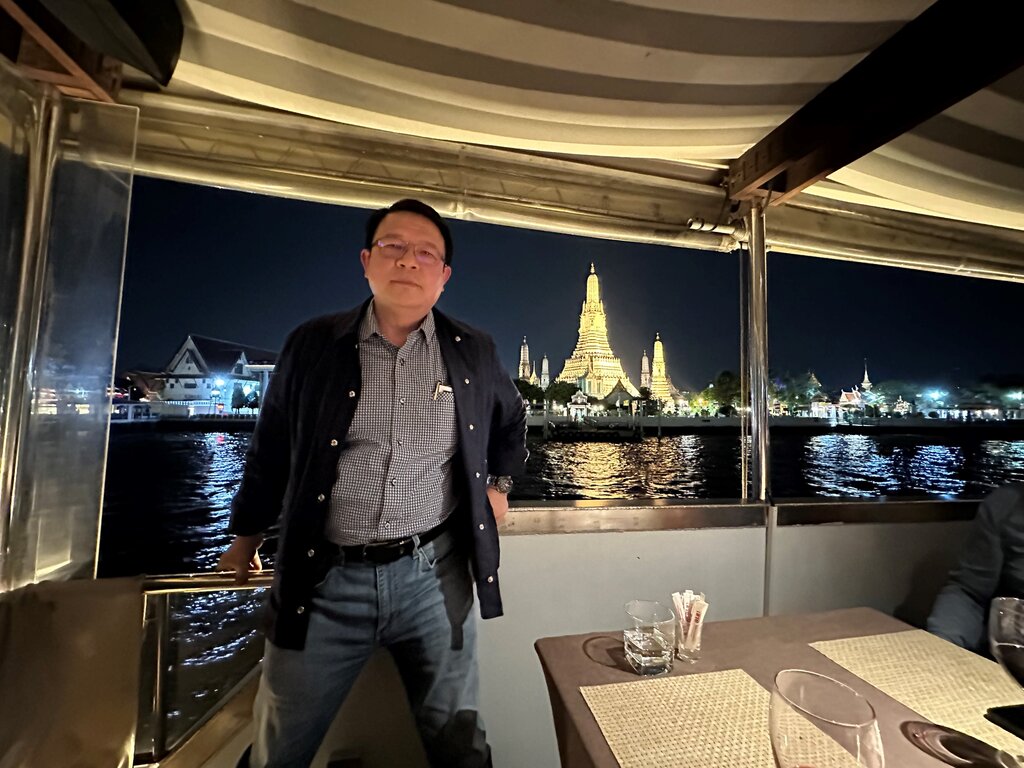
I have been to Thailand many times for vacation. It’s a beautiful country. I especially look forward to visiting Chiang Mai in the north and the islands of Phuket and Samui in the south. Since arriving I have been very busy setting up in my new home, so I still have not had the chance to travel there yet. Most weekends I enjoy the beautiful shopping malls in Bangkok as I look for furniture and other things I need for my new place.
As for the culture of Thailand, I think we all agree that this is a very friendly country. I find the lifestyle is not that different from Taiwan, but the people are much more friendly and relaxed here. If you deal with Thais, you find that they are always very courteous. The food is great too although sometimes a little bit too spicy.
How would you describe your management style, and what qualities do you think are important for leaders to have?
I always believe that people are what make the difference in a company. We can have great processes and systems but when it comes down to differentiating one company from another it is the people that are most important. Sometimes it just takes a few key people who set the standard. I generally like to provide people working around me with the space and freedom to take their own initiative. However, we are a manufacturing operation so we still will have to maintain our discipline in order to effectively run manufacturing aspects.
I expect our leaders to be responsive to customer demands at all times and to be disciplined. However, I don't want to be a leader who only dictates or always tells my associates what to do. You all have your defined function and jobs and you can do your work. If you have difficulties, we can always communicate openly. I'm always there to support, either in terms of my own effort or in terms of resources that I can utilize.
So that's kind of the basic philosophy of how I do things as a leader. I try to maintain a chemistry with whoever I deal with by being direct and open. However, at the end of the day, if there is a tough decision that has to be made, I'm the one that has to make it. So, when we don't have a consensus, but something has to be done one way or the other then I will make a decision that I expect everybody to follow. But generally, if there's agreement, I won't say much and that's kind of my style.
Is there anything you would like to share with our Delta colleagues in Thailand and around the world?
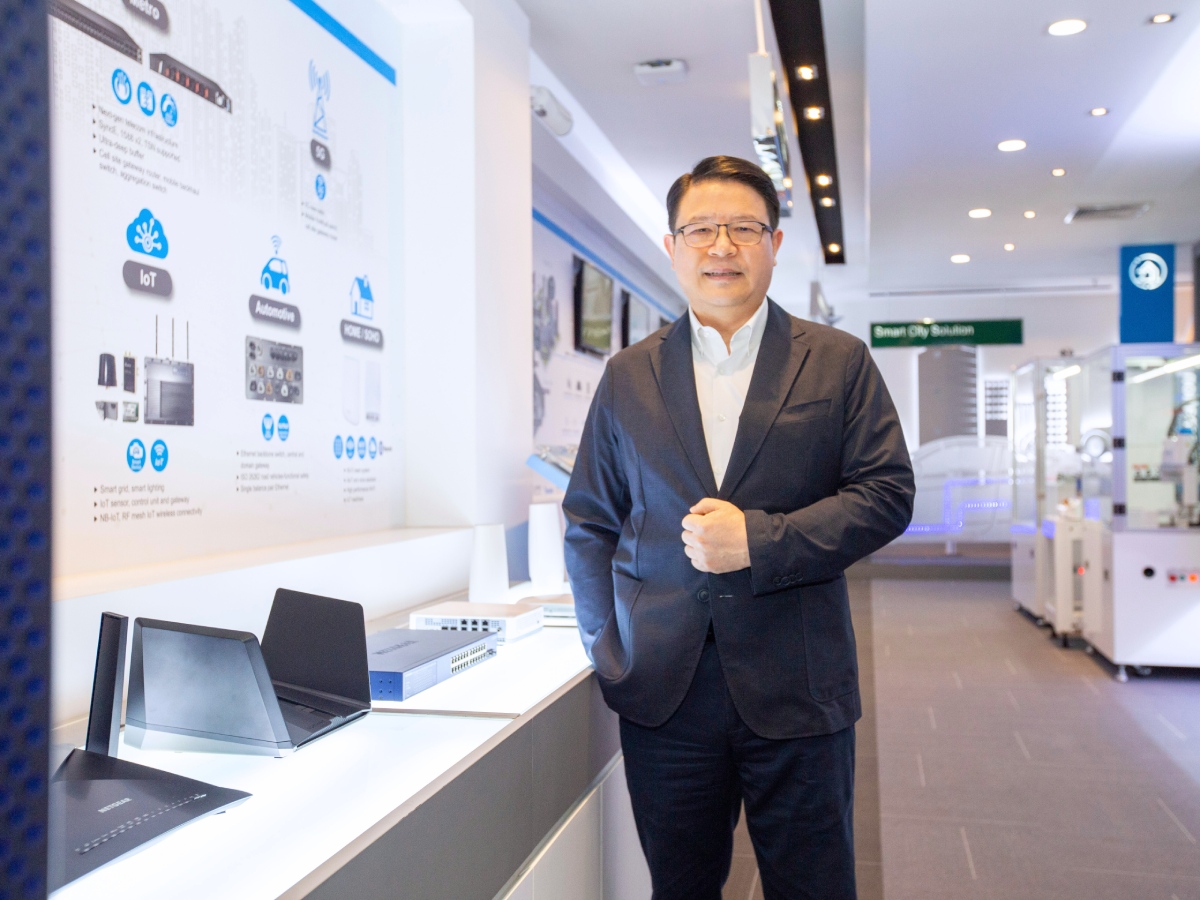
All of us have similar basic needs. We all want to accomplish something whether it’s in our career, finances or family. And we want to be recognized. It’s human nature that we want to be respected and feel a certain level of achievement or importance. Even though Delta is not the biggest company, my hope is that we will bring Dela Thailand up to be a best-in-class company in our segment. I want Delta to be financially successful and sustainable in terms of consistent growth at a healthy pace.
I also want Delta Thailand to be respected in the community. Hopefully, when people hear that you work at Delta Thailand they will say, “Oh, that's a good company.” Because in Taiwan we enjoy such a reputation. When they say good, that doesn’t mean it’s because we're the most financially successful company like TSMC or in terms of size like Foxconn. However, over the years people came to feel that Delta is a technology leader in power and does many good things for our community. We actually do something about protecting the environment and enabling renewable energy and these actions spread the message of who we are.
In Thailand, we have been fortunate to grow into the biggest company in Thailand’s electronic manufacturing sector. Being the biggest is a good foundation and our activities with local universities and our energy solutions will have an impact on the overall development of Thailand's industry and infrastructure. We are here to grow a business and to make a profit, but we also have a purpose to help this country and our communities. Hopefully we one day will be recognized as a very good company and everyone will share a sense of pride that we work at Delta Thailand.
